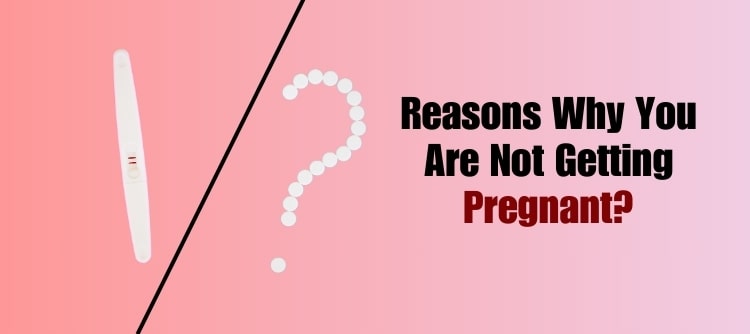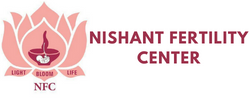Reasons Why You Are Not Getting Pregnant

The journey to parenthood is often seen as a natural and joyous process. However, for some individuals or couples, the path to conception may not be as straightforward as expected. In this blog post, we will explore common reasons why individuals may be facing challenges in getting pregnant and offer insights into potential solutions.
Understanding Infertility:
Infertility is generally defined as the inability to conceive after a year of regular, unprotected intercourse. It’s essential to recognize that infertility is not solely a female issue; both partners contribute to the likelihood of conception. Exploring the various factors that could be affecting fertility is a crucial step in addressing this concern.
Causes of Infertility
a. Female Factors:
Ovulatory Issues: Irregular or absent ovulation can significantly impact a woman’s fertility. Conditions like polycystic ovary syndrome (PCOS) and hypothalamic amenorrhea can disrupt the normal ovulatory process.
Age: As women age, they become less fertile, especially beyond the age of 35. The amount and quality of eggs have decreased, which is the cause of this.
Uterine and Tubal Issues: Structural problems with the uterus or fallopian tubes, such as fibroids or blockages, can hinder the fertilization process.
Endometriosis: A condition where tissue similar to the lining of the uterus grows outside the uterus, potentially causing fertility problems.
b. Male Factors:
Sperm Issues: Low sperm count, poor sperm motility, and abnormal sperm morphology can all contribute to male infertility.
Testicular Factors: Conditions affecting the testicles, such as varicocele (enlarged veins in the scrotum), can impact sperm production.
Ejaculation Disorders: Problems with ejaculation, such as premature ejaculation or retrograde ejaculation (sperm entering the bladder instead of exiting the penis), can affect fertility.
c. Combined Factors:
Lifestyle Factors: Smoking, excessive alcohol consumption, obesity, and drug use can all negatively impact fertility in both men and women.
Environmental Factors: Exposure to certain toxins, chemicals, and radiation may contribute to fertility issues.
Medical Conditions: Conditions like diabetes, thyroid disorders, and autoimmune diseases can affect fertility in both men and women.
Factors that Affecting Pregnancy
Bringing a new life into the world is a profound and beautiful journey that many couples embark on. However, for some, the path to parenthood can be a challenging one. If you find yourself asking, “Why am I not getting pregnant?” you’re not alone. In this comprehensive guide, we’ll explore potential reasons behind fertility struggles and offer insights that may help you on your journey.
Timing is everything:
One of the most common reasons for difficulty in conceiving is improper timing. Understanding your menstrual cycle and pinpointing your fertile window is crucial. Ovulation typically occurs around the 14th day of a regular 28-day cycle, but it can vary. Tracking your cycle and using ovulation predictor kits can help you identify the optimal time for conception.
Age Matters:
Age can significantly impact fertility, especially for women. Female fertility starts to decline in the late 20s, with a more significant decrease after the age of 35. As women age, the quantity and quality of eggs diminish, making it harder to conceive. As men age, the quality of their sperm likewise decreases.
Underlying Health Conditions:
Certain health conditions can affect fertility. Conditions such as polycystic ovary syndrome (PCOS), endometriosis, and thyroid disorders can disrupt the reproductive system. Both partners should undergo a thorough health check to identify any underlying issues that may be hindering conception.
Lifestyle Factors:
Unhealthy lifestyle choices can play a role in fertility issues. Smoking, excessive alcohol consumption, drug use, and obesity can negatively impact fertility in both men and women. Adopting a healthier lifestyle can enhance your chances of conceiving.
Stress and Emotional Well-being:
The mind-body connection is powerful, and stress can have a significant impact on fertility. High-stress levels can disrupt hormonal balance and affect ovulation. Incorporating stress-reducing activities such as yoga, meditation, or counseling may positively influence your fertility journey.
Inadequate Nutrition:
Nutrition plays a crucial role in reproductive health. A balanced diet rich in vitamins and minerals, especially folic acid, is essential for fertility. Being either underweight or overweight can disrupt hormonal balance and affect reproductive function. Consult with an Infertility specialist in Jaipur, Rajasthan, or a nutritionist to optimize your diet for fertility.
Sexual Health and Timing:
Besides timing intercourse around ovulation, the overall quality of sperm and egg is vital. Regular sexual activity, every 2-3 days, helps ensure the presence of healthy sperm. Avoiding lubricants that may be detrimental to sperm health and maintaining good sexual health practices can positively impact fertility.
Environmental Factors:
Environmental toxins and pollutants can have a negative impact on fertility. Exposure to chemicals, pesticides, and certain workplace hazards may affect reproductive health. Identifying and minimizing exposure to these factors can be crucial in optimizing fertility.
Genetic Factors:
Sometimes, fertility struggles can be attributed to genetic factors. Certain genetic conditions may affect fertility in both men and women. Consulting with a genetic counselor can help identify any potential genetic issues and explore appropriate solutions.
Unexplained Infertility:
In some cases, despite thorough testing, the cause of infertility remains unknown. This can be frustrating, but it’s essential to remain patient and explore various fertility treatments and options with the guidance of a fertility specialist.
Conclusion:
Facing challenges in getting pregnant can be emotionally taxing, but there is hope and help available. Consulting with an infertility specialist is a crucial step toward understanding the underlying causes and exploring appropriate solutions. In this vibrant city, individuals can rely on the expertise of professionals like Nishant Fertility Center in Jaipur Rajasthan, who are committed to providing personalized care and effective treatment options.
